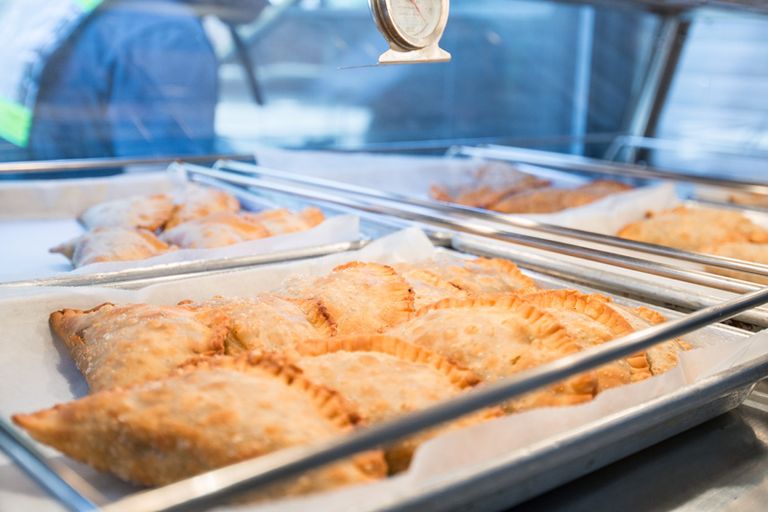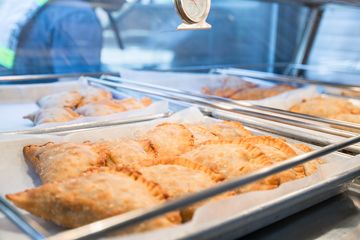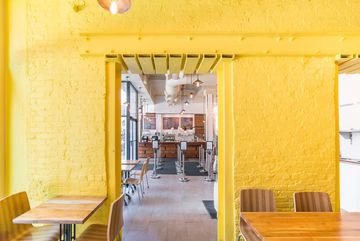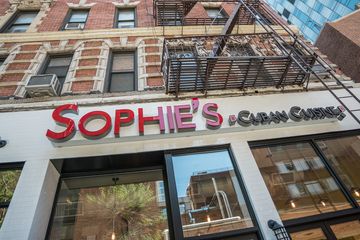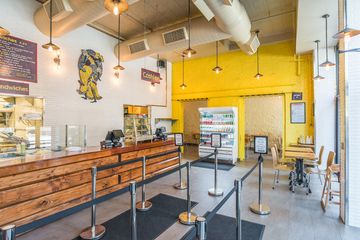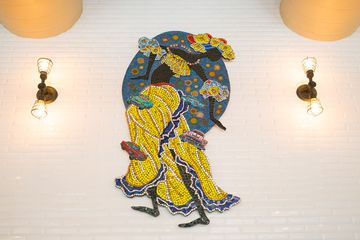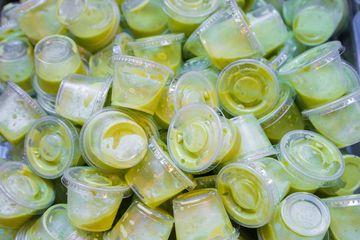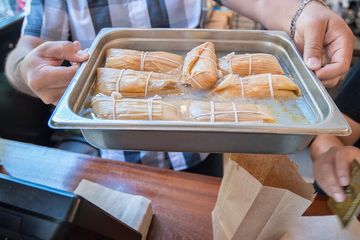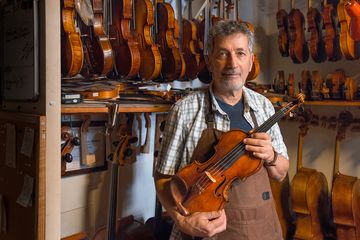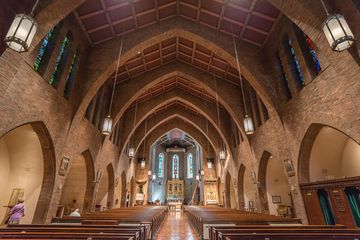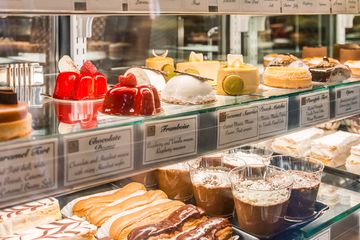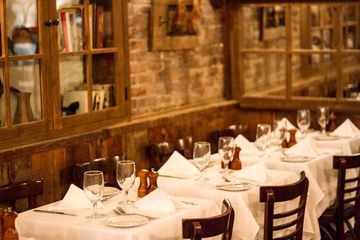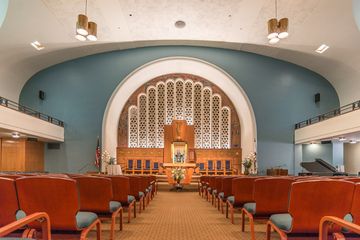As our readers know, we love the term "hidden gem" at Manhattan Sideways, but it is rare that we find a place that fits the term as well as David Segal Violins. Some members of the Manhattan Sideways team and I were walking along 68th Street when one of the summer interns pointed out that a musician was playing a violin behind a semi-subterranean window. Glancing further, we noticed a man crafting a violin in the adjoining window. Always the inquisitive one, I attempted to find something to indicate what was happening inside this building, but it was not until we went to our cell phones and Googled "violin shop on West 68th, " that we discovered the history of the half-hidden musical grotto. I then called the phone number that came up and introduced myself to David Segal, a violinmaker and dealer who has been servicing the musicians of Lincoln Center and the greater New York area since 1975. He kindly buzzed us in, and it was then that we were able to truly appreciate his magical workshop and showroom. While showing us around, David explained that he had been on 54th and 62nd Street before moving to his present location. "This is the last time: the next time they will move me, " he said with a wry grin. He had an excellent sense of humor, as well as a clear sense of wonder and joy that came through in our time spent together. As I gazed in wonder at a young apprentice who was busy at his desk working with both wood and strings, I commented to the others that this was reminiscent of Geppetto's puppet shop. David laughed, and began to share his story. Originally from Israel, he left for Italy in 1969 to study the art of violin-making. The art is in his blood: his father also made violins, and David showed me the wall of photographs of musicians who use violins crafted either by himself or his dad. After completing his degree in 1972, David moved to New York. Since then, he has become firmly entrenched on the Upper West Side. "I don't have a visa to go to the East Side, " he joked. Through his work, he met his wife, who played with the New York Philharmonic for forty years. She came in to buy a "bow, " and left with a "beau. "Turning to his studio door, I saw a picture of his adorable young grandson, and learned that he has a very artistic family, with his son working as a conductor and his daughter as a visual artist. David himself also dabbles in visual arts: He pointed out a mobile hanging above the front room, crafted from violin bows and bridges. He makes them for his grandchildren, he told us. When I asked David about the charming small violins, he explained that each size is for a different age group. Beaming, he held up the tiniest one in the room, and declared "I am taking this one home with me tonight. My two year old grandson will be arriving in New York shortly. "Right before we left, David opened a vault in the front room and pulled out a true Stradivarius, crafted in 1737, which must have been worth a fortune. He says, however, that all that matters with a violin is the sound. Musicians, including his wife, have often traded antique, beautifully made violins for newer, cheaper ones with better sound. "We want to make a violin that sounds good, " he stated simply. "If it sounds great, it doesn't matter if it is not so beautiful. " As he spoke to us, a customer was testing violins in the front room. He said that clients can take an hour or two to test out the instruments, and may even take them home for a week's trial period. As I heard the strains of tunes come from the customer's test subject, I asked David if he still loves hearing the musicians play, or if it has become background noise to him after so many years. He smiled and said, "I listen to music with great pleasure all the time... but I only listen to classical! "
